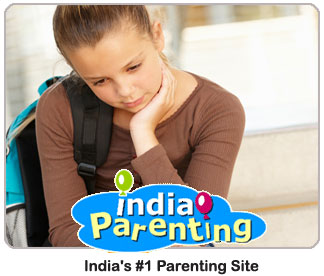Support of family and psychological treatments are very important to help anorexics, bulimics and compulsive overeaters in order to cope with the eating disorders. Let us take a look at how to help the victims of eating disorders. Anorexics, bulimics and compulsive overeaters should seek help. They will probably be hospitalized initially to normalize their body functions. They should visit a psychologist or a counsellor to help them deal with their feelings of inadequacy and low self-esteem.
People who suffer from an eating disorder need to be handled gently. Their self-esteem is at a rock-bottom level. They need to feel that they are in control of their lives and to be told that they are accepted and attractive just the way they are.
The counsellor will probably recommend behaviour modification therapy whereby the person is rewarded every time they reach a weight gain or weight loss target.
Compulsive overeaters should try not to be alone for too long as far as possible. They should keep low calorie snacks around the house and try to distract themselves with physical activity every time they feel a craving for food.
Why is early intervention important?
Early intervention and right management of eating disorders is very important. Treating these disorders early can prevent their serious effects on the physical and emotional health of the person. If these disorders are not treated at an earliest, they can result in health disorders like hypertension, stroke, obesity, damage to the digestive system, depression, vitamin deficiency disorders, infertility etc. Early intervention can be possible by making a note of symptoms of these disorders.
What are the common symptoms of eating disorders?
Let us take a look at the common symptoms of eating disorders like anorexia, bulimia and compulsive overeating.
Symptoms of Anorexia
The person coping with
anorexia may exhibit the following symptoms.
- Striving extremely hard to lose weight
- Obsessed about thin and slim looks
- Completely restricting one’s self from eating
- Close monitoring of weight due to fear of weight gain
- Negative body image and drop in self-esteem
- Missing periods in girls
- Fatigue
- Lack of interest in anything
Symptoms of Bulimia
Have a quick look at the symptoms that are common in
bulimics.
- Eating huge amounts of foods
- Disability to control the overeating habit
- Punishing one’s self for overeating with vomiting and purging
- Exercising hard and fasting to combat the effect of overeating
- Negative body image and very unsatisfied about their looks
- Problems related to digestive system
Symptoms of Compulsive Overeating
Eating at lot of food over and over again unnecessarily is one of the typical symptoms of compulsive overeating. Children coping with compulsive overeating depend on food in order to cover their stress, guilt, fear, pressure, feeling of disgust or if something is bothering them etc. This obsession with food can also be a result of childhood habit of eating on and on.
If any of the symptoms are observed, immediate action must be taken. These problems can be solved with the help of psychotherapy, right care and monitoring, counselling and medication. If the problems have become worse, hospitalization may be advised.
Family can play a very important role in helping children find the way out. The support of family is very crucial in helping children get back to normal. Providing emotional support can help a lot to the victims of eating disorders to get rid of such disorders. Spending quality time with them, finding out what is bothering them, talking them, telling them about the importance of good nutrition and health, taking them on outings and vacations, helping them indulge in hobbies are the few thing family members can do to help the victims cope with such disorders.































